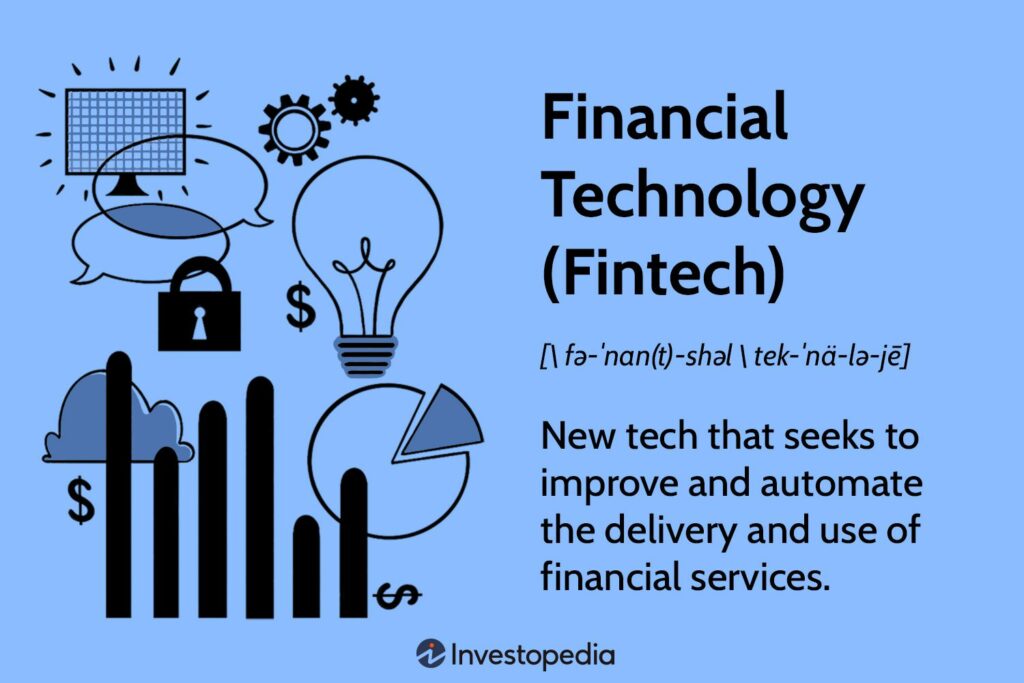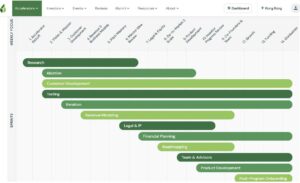
In my forty-five years in industry, I have spent 33 of it in industry and the other 12 in academic and professional education. I enjoy both sides of the street and think there is value in having both perspectives. When I was teaching investment management at university I was also creating and running professional/industry courses on all aspects of financial markets. I am no longer a Professor at a university but am working on new training/professional education for entrepreneurship given my role as one of three Chapter leaders in Hong Kong for Founder Institute (FI) and running the ASEAN FinTech industry ‘vertical’ there.
The FI Core Program is basically a business course teaching Founders the key concepts they need to understand and apply to make their start-up successful, and it is industry agnostic.

I noted that many Founders who were involved with FinTech start-ups came from a technology background and had little or no experience with financial markets. This reminded me of a previous decade when I ran a large financial markets training business for investment banks in Europe and the Middle East. We had very good attendance on our courses but I was surprised to see that only a minority were from sales, trading and investing and more were from legal, accountancy and IT reflecting all the other skill sets a large bank must have with the growing regulatory and technology requirements. But these people, though highly educated and trained, did not have a financial markets background and needed a ‘crash course’ on financial markets and products to be effective inside the bank.
To be successful in an industry, like finance, you need industry knowledge to identify opportunities and talk knowledgeably with people (customers) in the industry. So, when we first offered the FinTech vertical we decided to supplement the Core Program with extra sessions to teach FinTech Founders about financial markets.
FinTech Vertical (2012) =
We used to say that a business was two businesses, the subject matter expertise specific to that industry and the business knowledge that any company must have to be commercially successful.
But times change.
As mentioned, I was running financial markets executive education from 2004 – 12. What I discovered when I started professional training for start-ups in 2017 was how much technology has changed – advanced – and how it has become all pervasive in everything we do. This is particularly true in the financial industry, which is an industry of intangibles and so often the ‘first mover’ in new technology.
Here are just a few fundamental changes I have had to update myself on to remain relevant in the financial education industry:

I now understand there are three (not two) core competencies that must reside in any new company:
FinTech Vertical (2025) =
Much of today’s technology, whether it is SaaS, AI, blockchain or something else will become essential in the running of any business. We can be certain that the financial industry will be an early user of most and a large user of all over the longer term. So, having this knowledge from day 1 has become a ‘must have’.
But there is only so much we can throw at a Founder at one time without the risk of overwhelming them. So, we had to think carefully about the delivery of these three competencies. My personal view, which you may or may not agree with, is that 3. Technology is about ‘build and implementation’. Whereas the initial problem identification, market research, and conceptual prototype can be done and designed before we get into the details of the technology used for implementation. So, we are working with other partners who are specialists in the field, for our graduating Founders to move onto a further, technical accelerator to learn, design and build the actual technology they will launch their MVP with. We hope to announce these partnerships in the upcoming weeks and months. But when they are firmly in place, we believe our ‘three competency model’, though demanding to go through, will provide the FinTech Founder with all the knowledge and experience to launch – and that is our goal.
John D. Evans, CFA
Founder & General Manager, SEIML
Hong Kong, 10 March 2025

Benny曾在中国金融市场工作,聚焦于固定收益、货币和资产负债管理。 他目前是宁波一家中型私募基金管理公司量利资本的副总裁。 公司的策略包括各种类型的固定收益投资组合管理和可转换债券投资组合管理。 此外,Benny 还为证券公司母基金、企业投资者和高净值个人等专业投资者提供金融投资服务。
Benny 还一直活跃在证券业务的商业领域,管理客户业务发展战略、营销计划和路演,并为中小型银行和其他金融机构开发和提供金融市场培训计划。
Benny 精通普通话、英语和日语。

自 2014 年春从法国攻读研究生回到中国以来,Jina一直致力于电商领域及其在金融、娱乐和汽车行业的应用。 她是一位多功能人才,能说流利的普通话、英语和法语。
Jina 是 SEIML 在外国客户和中国行政机构之间的主要关系经理,曾多次负责与在中国运营的国际公司和管理人员打交道。 因此,她负责管理公司与客户的所有业务流程外包(BPO)活动。
她拥有经济学研究生学位,并完成了特许金融分析师协会(CFA Institute)颁发的投资基础证书,因此具备协助外国公司进行中国市场研究的知识,包括对潜在客户、供应商或其他第三方进行审查。 她在使用中国社交媒体方面也颇有心得。
Jina 精通普通话、英语和法语。

John 职业生涯的前 24 年是在投资银行度过的,先是在多伦多,后来短暂去了纽约和伦敦。 他曾为欧洲、中东和非洲地区的大型基金提供债务资本市场(DCM)、股权资本市场(ECM) 和战略投资咨询。
2004 年,他转入学术界,在英国和中国的大学设计并开设了投资管理硕士课程。 在英国大学就读期间,他还创建并管理着欧洲一家规模较大的金融专业培训机构(该机构是培训公司的合资伙伴)。
2016 年,John 重返行业,与初创企业以及各种平台和生态体系合作,为这些处于早期和中期阶段的公司提供支持。 起初,他在上海地区开展这项业务,但后于 2024 年迁至香港,以便在东南亚地区建立 SEIML 的足迹。 John 还是香港创始人协会(FI)生态体系的董事和 创始人协会东盟金融科技加速器的项目总监。